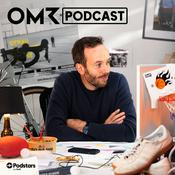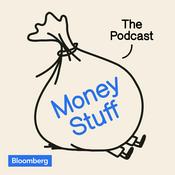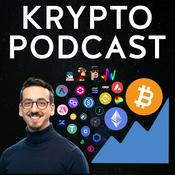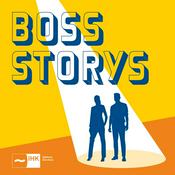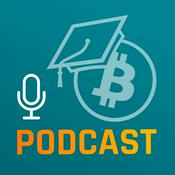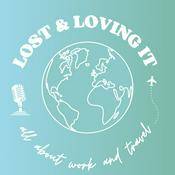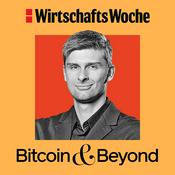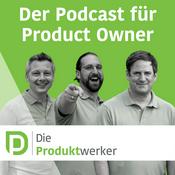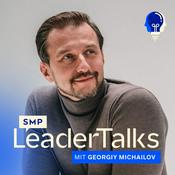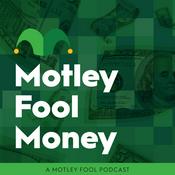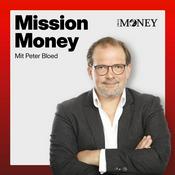673 Episoden
673: Daniel Coyle - Opening Yellow Doors, Mastering Your Craft, World-Class Storytelling Techniques, Great Questions to Ask, Building Your Community, The Power of Curiosity, and How to Flourish in Life
02.2.2026 | 57 Min.Go to www.LearningLeader.com for full show notes
This is brought to you by Insight Global. If you need to hire one person, hire a team of people, or transform your business through Talent or Technical Services, Insight Global's team of 30,000 people around the world has the hustle and grit to deliver.
My Guest: Dan Coyle is a New York Times bestselling author who's spent the last two decades studying what makes great teams great. He wrote The Talent Code, The Culture Code, and now Flourish—books that have shaped how millions of people think about skill development, team culture, and meaningful connection. He works with the Cleveland Guardians as a special advisor on culture and performance. We recorded this one together in Cleveland.
Notes:
Find your yellow doors. Most of us go through life looking for green doors (clearly open paths) and red doors (obviously closed paths). But yellow doors are different. They're out of the corner of your eye, things that make you uncomfortable or feel brand new. That's where life actually happens. We think life is a straight line from A to B to C, but it's not. Life isn't a game... It's complex, living, shifting. Yellow doors are opportunities to create meaningful connections and explore new paths. "Life deepens when we become aware of the yellow doors, the ones we glimpse out of the corner of our eye."
The craft journey always involves getting simpler. Simple is not easy. The great ones have their craft to where there's a simplicity to it. In this world of clutter and noise, it's easy to want to compete with energy and speed, but the stuff that really resonates is quieter and simpler. Be a beginner again in something. With climbing, Dan's at the very bottom of the craft mountain. With writing, he's somewhere in the middle. It's fun to have a couple of zones in your life where you're a beginner. It's liberating, but it also develops empathy. Some stuff looks very simple, but isn't.
Every good story has three elements. There's some desire (I want to get somewhere), there's some obstacle (this thing standing in my way), and there's some transformation on that journey. Teaching teaches you. Coaching Zoe's writing team helped Dan, and then Zoe ended up coaching Dan. It was never "let me transmit all my wisdom to my daughter." It was a rich two-way dialogue that helped both of them.
Suffering together is powerful. Doing hard things together with other people, untangling things together (literally and figuratively), and being vulnerable together. That's culture code stuff. Whether it's skiing with your kids, seeing them fall and get back up, or being trapped underground like the Chilean miners.
Behind every individual success is a community. Dan dedicates all his books to his wife, Jenny (except one). Growing up, he had this idea of individual success, individual greatness. But when you scratch one of those individual stories, what's revealed is a community of people. Jenny is the ecosystem that lets Dan do what he does. Going from writing project to writing project, hoping stuff works out, exploring... it's not efficient. It's not getting on the train to work and coming home at five o'clock. It's "I think I need to go to Russia" or "I need to dig into this." She's been more than a partner, an incredible teammate.
Great organizations aren't machines; they're rivers. The old model of leadership is the pilot of the boat, the person flipping levers who has all the answers. That's how most of us grew up thinking about leaders. But Indiana football, the SEALs, Pixar... when you get close to these organizations, they're not functioning like machines. Machines are controlled from the outside and produce predictable results. These organizations are more like energy channels that are exploring. They're like rivers. How do you make a river flow? Give it a horizon to flow toward (where are we going?), set up river banks (where we're not gonna go), but inside that space create energy and agency. Questions do that. Leaders who are good at lobbing questions in and then closing their mouth... that's the most powerful skill.
Great teams have peer leaders who sacrifice. Since Indiana football's fresh in our minds... Peer leaders who sacrifice for the team are really big. Fernando Mendoza got smoked, battered, hammered, and he kept going without complaint. In his interview afterward, he talks about his teammates. That's the DNA of great teams.
Adversity reveals everything. The litmus test: in moments of terrible adversity, what's the instinct? Are we turning toward each other or away from each other? You could see it in that game. The contrast between the two teams. When things went bad, they responded very differently.
The coach isn't as important as you think. Coaches can create the conditions for the team to emerge, but great teams sometimes pit themselves against the coach. The US Olympic hockey team of 1980 would be an example. They came together against Herb Brooks. So coaching sets the tone, but it's not as big a part of DNA as people think.
Curiosity keeps great teams from drinking their own Kool-Aid. The teams that consistently succeed don't get gassed up on their own stuff. They don't believe in their success. They're not buying into "now I'm at the top of the mountain, everything's fine." They get curious about that next mountain, curious about each other, curious about the situation. They're willing to let go of stuff that didn't work.
Honor the departed. When someone gets traded in pro sports, it's like death. Their locker's empty like a gravestone. What the coach at OKC does: on the day after somebody gets traded, he spends a minute of practice expressing his appreciation for that person who's gone. How simple and human is that? How powerful?
What makes people flourish is community. It's not a bunch of individuals that are individually together. Can they connect? Can they love their neighbor and support their neighbor? That's magical when it happens.
The Chilean miners created civilization through rituals. 33 men, 2,000 feet underground, trapped for 69 days. The first couple hours went as bad as it could. People eating all the food, scrambling, yelling. Then they circled up and paused. The boss took off his helmet and said, "There are no bosses and no employees. We're all one here." Their attention shifted from terror and survival to the larger connection they had with each other. They self-organized. Built sleeping areas, rationed food, created games with limited light. Each meal they'd share a flake of tuna at the same time. When they got contact with the surface, they sang the Chilean national anthem together. They created a little model civilization that functioned incredibly well.
Stopping and looking creates community. What let the miners flourish wasn't information or analysis. It was letting go. Having this moment of meaning, creating presence. All the groups Dan visited had this ability in all the busyness to stop and ask: What are we really about? What matters here? What is our community? Why are we here? What is bigger than us that we're connected to? They grounded themselves in those moments over and over.
Getting smart only gets you so far. There's a myth in our culture that individuals can flourish. You see someone successful and think "that individual's flourishing." But underneath them, invisibly, they're part of a larger community. We only become our best through other people. We have a pronoun problem: I, me, when actually it's we and us. Self-improvement isn't as powerful as shared improvement.
Ask energizing questions. "What's energizing you right now?" is a great question. "What do you want more of?" "What do you want to do differently?" (not "what are you doing poorly"). "Paint a picture five years from now, things go great, give me an average Tuesday." What you're trying to do is get people out of their narrow boredom, let go a little, surrender a little, open up and point out things in the corner of their eye.
When things go rough, go help somebody. Craig Counsell on how to bounce back when you're having a bad day: "I try to go help somebody." That's it.
Create presence conditions. The ski trips, the long drives, the shared meals, no phones. Schedule them. This is how connection happens, whether it's with your family or your people at work.
Leaders who sustain excellence are intensely curious. Dan walked into the Guardians office expecting to pepper them with questions. The opposite happened. Jay, Chris, and Josh kept asking him question after question, wanting to learn. Leaders who sustain excellence have this desire to learn, improve, get better. Ask better questions. Actually listen. Ask follow-up questions. Curiosity is also the ultimate way to show love.
Reflection Questions
Dan says yellow doors are "out of the corner of your eye, things that make you uncomfortable or feel brand new." What's one yellow door you've been walking past lately? What's stopping you from opening it this week?The Chilean miners' boss took off his white helmet and said, "There are no bosses and no employees."
Think about a moment of adversity your team is facing right now. Are you turning toward each other or away? What's one specific action you could take this week to help your team turn toward each other? Dan emphasizes we have a "pronoun problem" (I, me vs. we, us) and that "self-improvement isn't as powerful as shared improvement."
Who are the 2-3 people you could invite into your growth journey right now? What would it look like to pursue excellence together instead of alone?672: Brad Stulberg - The Neuroscience of Curiosity, Process vs. Outcome Goals, The Power of Consistency, Playing Like The Beatles, Focusing on Your WHO, and The Way of Excellence
26.1.2026 | 1 Std. 11 Min.Go to www.LearningLeader.com to learn more
This is brought to you by Insight Global. If you need to hire one person, hire a team of people, or transform your business through Talent or Technical Services, Insight Global's team of 30,000 people around the world has the hustle and grit to deliver. www.InsightGlobal.com/LearningLeader
My guest: Brad Stulberg is a bestselling author and leading expert on sustainable performance and well-being. He's written for The New York Times, Outside Magazine, and The Atlantic, and his previous books include Peak Performance and The Practice of Groundedness. His latest book, The Way of Excellence, is great. Brad's writing combines cutting-edge science, ancient wisdom, and stories from world-class performers to help people do their best work without losing themselves in the process.
Notes:
Never pre-judge a performance. When you're feeling tired, uninspired, or off your game, show up anyway. Remember the Beatles scene—they looked bored and exhausted, but Paul still wrote "Get Back" that day. You don't know what's possible until you get going.
Discipline means doing what needs to be done regardless of how you feel. As powerlifter Layne Norton says, we don't need to feel good to get going... We need to get going to give ourselves a chance to feel good. Stop waiting for motivation. Start moving and let the feeling follow.
Audit who you're surrounding yourself with. The Air Force study is striking: the least fit person in your squadron determines everyone else's fitness level. If you sit within 25 feet of a high performer at work, your performance improves 15%. Within 25 feet of a low performer? It declines 30%. Your environment isn't neutral... Choose wisely.
Treat curiosity like a muscle. It's a reward-based behavior that gets stronger with use. When Kobe said he played "to figure things out," he was tapping into the neural circuitry that makes learning feel good and builds upon itself. Ask more questions. Stay curious about your craft.
Excellence isn't about perfection or optimization... It's about mastery and mattering. It's about showing up consistently, surrounding yourself wisely, and staying curious along the way.
To the late Robert Pirsig - one of the greatest blessings and joys and sources of satisfaction in my life is to be in conversation with your work. He's the author of Zen and the Art of Motorcycle Maintenance— "gumption is the psychic gasoline that keeps the whole thing going."
Arrogant people are loud. Confident people are quiet. Confidence requires evidence.
The neural circuitry associated with curiosity is like a muscle: it gets stronger with use. Curiosity is what neuroscientists call a reward-based behavior. It feels good, motivates us to keep going, and builds upon itself.
Kobe didn't play to win. He played to learn and grow. Kobe Bryant said he didn't play not to lose, and he didn't even play to win. He played to learn and to grow. He said the reason he did that is because it's so much more freeing. If you're really trying not to lose, you're going to be tight. If you're really trying to win, you're going to be tight. But if you're just out there to grow, you're going to be in the moment. When you're in the moment, you give yourself the best chance of having the performance you want.
The word compete comes from the Latin root word com, which means together, and petere, which means to seek, rise up, or strive. In its most genuine form, competition is about rising together (Caitlin Clark's story against LSU).
Love: The Detroit Lions had just won their first playoff game in 32 years. Following the game was a scene of pure jubilation. During a short break from the celebrating, the head coach, GM, and quarterback all gave brief speeches. Which collectively lasted about 2 minutes. During those 2 minutes, the word LOVE was repeated 7 times.
Homeostatic regulation -- Sense it in the greatness of others and when you're at your best. What Brad calls "excellence."
Surround yourself with people who have high standards. When things don't go your way, when you're inevitably heartbroken or frustrated, it's the people around you, the books you read, the art around you, the music you listen to, that's the stuff that speaks to you and keeps you going. It keeps you on the path even amidst the heartbreak.
Process goals work better than outcome goals for most people. If you're an amateur, you should be process-focused. When I train for powerlifting, I don't think about the meet that I'm training for. I think about showing up for the session today. If I think about the meeting, I get anxious, and my performance goes down. But if you're Steph Curry and you've been doing your thing for 20 years, you can think about winning the gold medal because your process is so automatic. For 99% of people, focus on the process.
"Brave New World" turns fear into curiosity. When you walk up to a bar loaded with more weight than you've ever touched, there can be fear about what it's going to feel like. If you go up to the bar with fear, you're going to miss the lift. If you're convinced you're going to make it, you'll make it, but your nervous system knows when you're lying to yourself. The middle ground is curiosity. Instead of saying "that's heavy, it's scary," I say "Brave New World. I've never touched this weight before. I have no idea what's going to happen, but let's find out." It splits the difference. I'm hyped, I'm giving myself a chance, I'm not lying to myself, but I'm also not scared.
Curiosity and fear cannot exist at the same time in the brain. There are seven pathways in the brain defined by affective neuroscientist Jaak Panksepp. Two of those pathways are the rage/fear pathway and the seeking/curiosity pathway. These pathways cannot be turned on at the same time. They compete for resources. It's a zero sum game. You cannot simultaneously be raging and curious. You cannot be terrified and curious at the same time. If you get into a mindset of curiosity, it's extremely hard to be angry or terrified. By being curious, we turn off the fear deep in our brains and give ourselves a chance to perform our best.
Practice curiosity in lower-consequence situations first. Curiosity is like a muscle. If you're about to do something absolutely terrifying and you're really scared and you say, "I'm just going to be curious," you know you're lying to yourself. You have to practice in lower-consequence situations first. When you, as a paren,t get really upset with your kid, try to be curious about their experience. Watch your anger calm down. When you as a leader, have a board presentation where you're feeling anxious, try to have that mindset of "Brave New World." When you're an athlete going into a big game obsessing about what could go wrong, try to be really curious instead.
The best competitors have emotional flexibility. As a competitor, you would know that in the confines of the game, you're not singing Kumbaya, you are trying to kill them. Then you have the emotional flexibility the minute that game ends to respect them as a person. That is the best way to compete. That's when our best performances happen. It's not either/or, it's both/and. It's playing really hard, giving everything you can for the win, seizing on your opponent's vulnerability, at the same time as having deep respect for them.
You don't have to be miserable to be excellent. There are people like David Goggins or Michael Jordan who seem motivated by anger and a chip on their shoulder. But Jordan would put his tongue out like this primal expression of joy when he was about to dunk. And Jordan won all his championships while being coached by Phil Jackson, the Zen master of compassion. There are the Steph Currys of the world, or Courtney Dauwalter (best ultra marathoner to ever exist), or Albert Einstein (total mystic who had so much fun in his work). There are two ways to the top of the mountain. For 99.999% of people, you end up performing better with fun and joy, and you have so much more satisfaction, which contributes to longevity.
The best leaders take work seriously but laugh at themselves. The best leaders I know in the corporate world, they take the work so seriously. They are so intense. But my God, do they laugh at themselves and their colleagues and have fun.
Reflection Questions
Brad says, "The things that break your heart are the things that fill your life with meaning." What are you currently holding back from caring deeply about because you're afraid of getting hurt? What would it look like to step fully into that arena despite the risk of heartbreak?
The Air Force study showed that sitting within 25 feet of a low performer decreases your performance by 30%. Honestly assess who you're spending the most time with right now. Are they raising your standards or lowering them? What specific change could you make this month to shift your environment?
Brad uses "Brave New World" to turn fear into curiosity before big challenges. Think of something coming up that makes you anxious. Instead of trying to convince yourself you'll succeed or dwelling on the fear, what does it feel like to approach it with pure curiosity: "I've never done this before. Let's find out what happens."671: Jimmy Wales (Founder of Wikipedia) - To Get Trust Give Trust, Why Nupedia Failed, Assuming Good Faith, Walking the Walk, Transparency vs. Sharing Everything, Curiosity as the Ultimate Love Language, and Attracting Trustworthy People
19.1.2026 | 52 Min.Go to www.LearningLeader.com for more
This is brought to you by Insight Global. If you need to hire one person, hire a team of people, or transform your business through Talent or Technical Services, Insight Global's team of 30,000 people around the world has the hustle and grit to deliver. www.InsightGlobal.com/LearningLeader
Jimmy Wales is the founder of Wikipedia, the free encyclopedia that anyone can edit. After his daughter Kira's birth faced medical challenges and he couldn't find reliable information online, Jimmy launched Wikipedia in January 2001. In this conversation, Jimmy shares why extending trust before it's earned creates better outcomes, how to deal with bad actors, and the seven rules for building things that last.
Notes:
Key Learnings (in Jimmy's words)
Wikipedia launched 20 days after my daughter was born. When Kira was born, I realized that when you go on the internet, and you've got a question like, "what is this condition my daughter has?" It just wasn't there. There were either random blogs or academic journal articles that were way above my head. Kira was born on December 26th, and I opened Wikipedia on January 15th.
Nupedia failed because of the seven-stage review process. Before Wikipedia, we worked on Nupedia. We recruited academics to write articles. You had to send in your CV showing you were qualified before you could write anything. We had very slow progress. I was on the verge of giving up. This top-down approach with a seven-stage review process before you publish anything that's no fun, and nobody's doing it.
We let anyone edit and figured we'd add structure later. We thought we'd have to figure out who the editor-in-chief of the chemistry section is. You're gonna have to have some kind of authority and hierarchy. But I thought, let's just not have too much structure for as long as possible.
"It's fun. You could be the first person to create a page."
There was a point in time when you could write, "Paris is the capital of France". That's amazing. It's not much of an encyclopedia article, but it was fun. It's like, oh, we can just start documenting whatever we know. People started just doing all kinds of stuff.
The magic is when you come back and see others improving your work. You could just write a few facts down and hit save, and it's not very good yet. But you'd go back a few days later and see somebody dug in, and they added more information. That element has always been really important. Is it fun? Do you enjoy the activity? Do you meet interesting people? You spend one afternoon, you add a few facts, and then you think, you know what? The world's just ever so slightly better.
Trust is conditional, not naive. Out of every thousand people, probably a small handful are gonna be really annoying. But it's really rare to have somebody who's actually malicious. The idea of assuming good faith, as we call it in Wikipedia, is extending trust first before it's been earned. It's conditional. You extend that friendly hand of trust. And if the person proves themselves to be super problematic, then you have to deal with it.
To get trust, give trust. Most people are decent. It also creates an environment where trustworthy behavior is rewarded. As a boss, wouldn't it be fantastic if you said, I'm going to go off and do this other thing, but I just trust my people are so good, they're gonna crack on with the work? Sometimes they'll make a call I would've made differently. That's okay. They're smart. Sometimes they're going to get it better than I did.
"You haven't earned my trust." When somebody looks you dead in the eye and says, "You haven't earned my trust," that's destruction. It's the opposite of building a culture where people can thrive.
Extending trust works in parenting, too. When teenagers say, "Well, it doesn't matter what I do, they're going to think the worst anyway, so I might as well do the bad thing." That's really unfortunate. As opposed to saying to your teenager, "Yeah, you want to go out and stay a little later than before. I want you to do that. I trust you, but you gotta do it the right way." You give that trust and believe me, they come home right on time because this is my chance to actually nail this. Give your children an opportunity to live up to building trust.
When trust is broken, you can rebuild it faster than you think. Frances Fry is a Harvard professor who had a huge job at Uber when they had an enormous crisis of trust. People say once you've broken trust, that's it, you can never get it back. But is it really true? No, it's actually not true. She thinks companies can rebuild trust faster than you think. A teenager who's broken a rule can rebuild trust pretty quickly. And our job is to let them rebuild that trust.
The eighth rule is walk the walk. The rules of trust aren't just a lot of good words. You actually have to walk the walk. If you say "I screwed up" and you own that, but then you go back to being the same as you were before, you're not going to rebuild trust. But if you walk the walk, people will see that.
Airbnb rebuilt trust by walking the walk. Really early in Airbnb's history, someone rented out their apartment and came home and it was absolutely trashed. Airbnb handled it very badly. They were stonewalling. In this era, that's often the wrong advice. Not saying anything just means it goes viral. So they ripped off the band-aid. They said, Look, we screwed this up. They started requiring ID's for people renting apartments out, ID's from customers, and substantial insurance for owners. They walked the walk.
Transparency doesn't mean sharing everything; it means sharing the process. If people can see your workings, they can see what you're doing and how it works, it gives them assurance in the process. It's about judgment calls. What would be helpful for us to share so people can trust the whole process?
If you think people are fundamentally rotten, you can't work with them. It's very easy when we look at the state of the world to be downtrodden, cynical, and don't trust anybody. If you think people on the other side of you politically or people at your workplace are fundamentally just rotten people, then you're going to have a hard time listening to them. You're going to have a hard time understanding where they're coming from. You're not going to do the right things that make sense to people. Which hurts all of society.
When you've been beaten up by life, change the channel. If you work somewhere where your boss doesn't trust you and your coworkers are all backstabbing freaks, it's time to change the channel. Every night, you should be trying to find a better position. Your number one criteria in looking for that next position is finding somebody who you think is a proper person to be your manager. Think of it as you're interviewing the company just as much as they're interviewing you.
When you give trust, you attract trustworthy people. When you become known as a person who gives trust before it's earned, you magically attract trustworthy people. It's kind of cool how it works. Will you get burned every once in a while? Maybe. But you attract the type of people that you wanna be around.
Curiosity is the ultimate love language. Get out there in the world and be curious. Asking people questions and being genuinely curious about their stories and learning about them and asking follow-up questions is a great way to show love and to connect with people. When you find yourself in a curiosity conversation where everyone's asking and learning, and they're head nodding and into it, there's nothing better. That's human nature connecting.
We are born to connect and collaborate with others. It's quite easy and natural for people to fit into whatever culture is around them. We naturally like to work together to build something good. We're social, and we like to be social. We collaborate to build experiences together. A party with only yourself is not a party.
Do what you love, even if it takes time to get there. One of the things that I think is really important is do what you love, do something that you really care about. Oftentimes for young people, there's this struggle between here's the thing that I really want to be doing, and here's the thing that's going to make me some money. Work really hard to find a way to put those together.
Reflection Questions
Jimmy says extending trust before it's earned creates better outcomes, but it requires not being naive when someone proves untrustworthy. Think of a situation where you're withholding trust. Is it because of actual evidence that this person is untrustworthy, or are you bringing baggage from past experiences with different people? What would it look like to extend conditional trust in this situation?
If you're in a leadership position, honestly assess: are there team members who feel you don't trust? What specific actions could you take this week to demonstrate trust before they've "earned" it in the traditional sense?
More Learning
#605 - Seth Godin: The Power of Remarkable Ideas
#598 - Sam Parr: Bold, Fast, Fun (Founder of The Hustle)
#645 - Ryan Petersen: Take Action - From Crisis to Solution
Audio Pod Timestamps
02:07 Jimmy Wales' Early Fascination with Encyclopedias
04:28 The Birth of Wikipedia
07:35 The Trust Factor in Wikipedia
12:04 Managing Bad Actors on Wikipedia
15:28 Personal Reflections on Trust
27:05 Setting Reasonable Boundaries for Teens
28:18 Rebuilding Trust After It's Broken
32:37 The Importance of Transparency in Leadership
36:50 The Power of Positive Purpose
39:06 Practical Advice for the Trust-Broken
43:01 Connecting and Collaborating with Others
45:17 Career Advice for Young Professionals
49:41 EOPC670: Mike Deegan - Building a Championship Culture, Mudita (Joy for Others), Systems Thinking, Curiosity = Love, Getting Out of a Slump, and The DNA of Great Teams
12.1.2026 | 51 Min.Go to www.LearningLeader.com to learn more...
This is brought to you by Insight Global. If you need to hire one person, hire a team of people, or transform your business through Talent or Technical Services, Insight Global's team of 30,000 people around the world has the hustle and grit to deliver. www.InsightGlobal.com/LearningLeader
My Guest: Mike Deegan just led Denison University Baseball to their first College World Series appearance in program history. He's been named Coach of the Year in back-to-back years and is the all-time winningest coach in school history. In this conversation, Mike shares how he uses Mudita to build culture, how to help people get out of slumps, and why discipline and consistency are superpowers.
Key Learnings (in Mike's words)
Mudita is a vicarious joy. Can I be happy for another's success as if it's my own? To me, that is like the secret sauce of life. Obviously, in a sports team, not everyone can be the star. One of the biggest misconceptions is that the star rotates. Yeah, you need a superstar to compete at the highest levels, but to win, you're going to need pinch runners, you're going to need the guy laying a big block. It's going to take everyone. It's really celebrating everyone's contribution.
In recruiting, I ask parents: Can you be happy for another kid's success as if it's your own? If your neighbor gets a new car, are you happy for them? Or do you say, "Oh, I wish. I bet his parents bought that for him." There are just different ways to show up for people, where you can just have joy. By pouring yourself into others, especially in sports, I think it frees you up to perform your best.
Envy is a natural feeling. I don't want anyone to feel that envy from me. I think what we're saying is that envy is a natural feeling. Wanting to do great yourself, those are very natural, and I want people to live in that space. But can we just stop it and be a little bit more intentional and just celebrate what other people are doing well?
Spot the good first. As a consultant, there are two ways you can do things. One is to find the negative, and that's really easy to do. But I try to go and spot the good first. There's plenty of time to nitpick later on. Find some opportunities to help people grow.
People love to talk about themselves. My wife is very quiet, a great listener, and people love her. She has a million best friends, and no one knows it because she doesn't talk a whole lot. She just listens. If you can just listen and get people to talk about what they're passionate about, it's a life secret. You can tell when someone's really passionate about what they're doing, and you can tell when they're on the fence because they speed up when they talk, they get a little excited.
Curiosity is a great way to show love. If you approach it from envy, we don't unpack the cool story. But if you lead with curiosity and not envy, it unpacks everything. I do think it takes a level of self-awareness and comfort in your own skin.
How to build self-awareness: Read, write, and get around wise people. If you read a decent amount, if you write (and that was my forcing function, to actually write and put thought to paper), and then get around wise people and just have conversations, I think you'll start building out the awareness of who you are and what you value.
A systems thinker builds frameworks that outlast individuals. It's someone who can build out frameworks that are built to put people and the organization in the best spot to win and be successful. It's a framework that outlasts individuals. Coaches may leave or players may leave, but if you have a system built out that it can sustain losing certain individuals, because things are cranking and you can repeat the work. You can do iterations and quickly test if you're getting closer or further from your goals.
I almost try to talk people out of coming here. The most underrated thing in our recruiting is when they sit with me, I almost try to talk people out of coming here. I'll say, "Hey, what's the main driver?" If they say playing time, I'm like, "Hey, that's great. That's an awesome goal, but I wouldn't come here for that. We're going to play our best players. But that's not why you come to Denison. You come to be a part of something bigger than yourself, and there are all these other places where you're going to have a much better shot at that." I'm always listening in on what they value and trying to challenge it. Almost get people to self-select out.
The better your culture is, you can take chances on people. It's like Randy Moss and the New England Patriots. Tom Brady was an alpha, and you could bring people in and take a risk and see if they can conform to the culture a little bit. When you have things in place, our locker room was phenomenal. People would say, "Hey, I don't know, this kid has some red flags." I'm like, "Red flags, like he's a serial killer? Or like red flag,s like he's super competitive?" The locker room would take care of a lot of that. If there's something built out that you feel pretty strongly about, I think you can take in some of these high-risk, high-reward people because they can't damage the culture like you would think they can. Early on in that tenure, I was very, very careful with this. But now we can take some chances on people if the DNA is right.
The lack of seriousness pushed people out. When I took over, I'm the opposite of the guy I played for. And every time someone quit, I would just say thank you. And I meant that too because we were going in a certain direction. There was talent. It needed more seriousness. We had enough talent that it was going to allow us to compete at a conference level. I think it's amazing when you can just put boundaries and guardrails and point people in the right direction. We just provided a little structure, a little discipline.
The DNA of great teams: Roles, sacrifice, discipline, leadership, joy. Everyone has a role and to beat objective expectations. When good meets good, you have got to understand that every role is essential to the cause. Status goes away. Second, we're in this together. There's no prima donna. I think that's what happens with championship teams. For us to compete on a national level, our guys do miss out on a lot. Grades may suffer. There are trade-offs with this thing. Then I hear discipline. Discipline and consistency is a superpower. The people that I see that really excel in the professional baseball world they seem to have a maturity about them at a much younger age. And that comes with discipline and consistency. Then leadership. There's going to be someone that's navigating the ship. In my beautiful world, it would be where that person's not an egomaniac. They're not in front. They're just waiting for everyone to get out. The last thing is joy. People tend to enjoy what they're doing. They do it with a smile on their face.
"Don't hire for when you think times are good. Hire for the person you wanna be around when times are bad because they're coming."
An example of a great team outside of sports: The Chilean miners found roles quickly and stuck together. They had food for two days but rationed it out. They had a spiritual leader, medical guy, someone to keep them on task. Everyone had a specific role and they performed it.
How you talk to your teammates is how you should talk to yourself. I had a conversation with a kid that I really admire on our team and I said, "Hey man, I never hear you talk to your teammates like you talk to yourself. Give yourself some grace." Being really hard on yourself can also be a cop out because there are ways to channel that. Sometimes people will say "I'm a perfectionist, or that's just who I am." Come on man. A perfectionist to me, they put an insane amount of work to earn the right to be. I think we use that term pretty lightly sometimes.
Confidence is built through evidence. Ryan's self-talk before a keynote sounds like this, "What an opportunity to create some evidence."
How to help a hitter get out of a slump: Simplify and control the controllables. When a player's in a slump, they're probably working harder than they've ever worked in their life. But I think it's almost like they're working aimlessly. So what I try to do is simplify. I had a hitter once, he's trying everything. I gave him one swing thought for two weeks. Just get the barrel to the ball. Don't worry about launch angle, don't worry about exit velo. Can you just put good wood on the ball? We're going to control what we can control. And slowly you start seeing some results and that evidence starts compounding and you get your mojo back.
You gotta be intentional with your energy before high performance. As a coach, how you show up is going to be really, really important. I saw Texas A&M's coach say you have to be the opposite of what the moment requires. While everyone's excited, you need to be the calm. And then when the proverbial is hitting the fan, you have to be the one with optimism. Getting yourself in the right mental frame to handle high performance is required of a coach and a leader.
Baseball teaches you to stay calm for three hours. You don't play baseball at 130 heartbeat. It's more of Can you get that thing down? And anything I do to increase it myself, I'm going against what it takes to be a successful player. People can think baseball is boring, but what you're seeing is people trying to stay calm for three hours.
Does that intensity actually lead to results? It's just basic stoicism. Baseball is the ultimate controlling what you can control and releasing what you can't. I don't know if this next ball's coming to me, but what do I do now? I can control my breathing. I control my first pitch prep step. What can you control? And I would challenge you to think, does that intensity or that emotion, does it actually lead to results or not? If it's helping you be the best version of yourself, go ahead and do it. But sometimes that overstimulation, that over emotion, it's probably just putting a lot of anxiety on your people. Just regulate, stay calm and execute.
What does the team need from you right now? I think a good analogy is a cornerman in boxing. My dad used to always say, Watch a cornerman in boxing because some people you gotta smack. Some people say, "Come on champ. You're the best. You're the best. You're the best." When you're walking out there, you're trying to think, what does the team need from you right now? What message? If I'm a mirror, what do they need to see? Do they need to see calm, they need to see reassurance? Are we playing a little timid and scared? And maybe you're trying to jolt them a little bit with some energy and some choice words. There's an intentionality to it. You're trying to speak some stuff into existence, even if you're making stuff up. You acknowledge it, and then you also try to point them in a direction for improvement.
Life throws haymakers at you all the time. I think that's the greatest gift that we can give people through sports. Most of us experience adversity along the way. It's this unique ability to just keep moving. You reflect, you try to get better. You give yourself some grace, you move on. You just keep working through that process. As simple as it may sound to us, I don't think many people can get there.
"Setbacks are temporary. I bounce back quickly." I write this down in my lineup card. You're creating evidence. It's something very simple, but I'm going to take a punch and I'll bounce back quickly. I think those are just good reminders in life. This happens. We're going to respond.
Reflection Questions
Mike practices Mudita by being genuinely happy for others' success without envy. Think of someone in your life who recently had a big win (promotion, new house, achievement). Were you genuinely happy for them, or did envy creep in? What would it look like to celebrate them more fully?
He says "Don't hire for when you think times are good. Hire for the person you wanna be around when times are bad." Who on your current team would you want in the foxhole with you during a crisis, and what qualities make them that person?
Mike asks himself before big moments: "What does the team need from me right now?" rather than just reacting emotionally. Think about a high-pressure situation coming up in your life. What will your team/family/colleagues need from you in that moment, and how can you prepare to show up that way?
More Learning
#217 - JJ Reddick: You've Never Arrived, You're Always Becoming
#281 - George Raveling: Eight Decades of Wisdom
#509 - Buzz Williams: The 9 Daily Disciplines
Audio Timestamps:
02:11 Implementing Mudita in Teams
06:22 Curiosity and Spotting the Good
14:54 Recruiting and Hiring Philosophy
20:36 Building a Winning Culture
24:46 DNA of Great Teams
27:55 The Importance of Team Sacrifice
28:53 Leadership and Joy in Tough Times
29:42 Handling Adversity in Sports
31:06 The Role of Self-Talk in Performance
36:52 Staying Calm Under Pressure
42:26 Lessons from Sports for Life
46:12 The Value of Resilience and Bouncing Back
48:29 EOPC669: Oz Pearlman (Oz The Mentalist) - Overcoming Rejection, Getting the Reps, Always Following Up, Living with Gratitude, America's Got Talent, The Curiosity of Steven Spielberg, and Making Others Feel Seen
05.1.2026 | 54 Min.Go to www.LearningLeader.com for world-class notes
This is brought to you by Insight Global. If you need to hire one person, hire a team of people, or transform your business through Talent or Technical Services, Insight Global's team of 30,000 people around the world has the hustle and grit to deliver.
My guest: Oz Pearlman is the greatest mentalist in the world. After leaving Wall Street to pursue his craft full-time, he's performed for Steven Spielberg's family, for Nobel laureates, and Fortune 500 CEOs. He ran a 2:23 marathon and holds the record for most laps around Central Park in a single day. With five kids and 250+ performances a year, Oz has mastered the art of reading people and understanding what separates good from world-class.
Key Learnings (In Oz's words)
Doug Anderson is the magician who got me into magic. When I was 13 years old, I went on a cruise with my parents. I got pulled up on stage and took part in a magic trick. (The sponge balls) After the trick, my dad and I started creating theories on how the trick worked.
The people in every industry who make it to the top are the ones who are kind and respectful to others. As soon as you stop thinking that you can learn from others, you start dying.
What is the recipe for success? It's getting through the tough times. When I walked up to someone at a restaurant, and I'm 14, and I have a very fragile ego, after three tables in a row at differing levels of rudeness go by, "Dude, get outta here, man. Like, I don't wanna see this," it hurts. That's a painful thing to experience. I had to learn a defense mechanism very quickly because carrying that pain, pain turns into anger. When I get to the next table, I'm angry at the next group, even though they haven't done anything wrong to me.
I realized to get my goal, I needed tougher, thicker skin. Deflect the rejection onto someone else.
Create separation between you and rejection. I created what I would call an agent in my own mind. When you're in showbiz, the conversations you don't wanna have, your agent has for you. I'm a 14-year-old doing restaurants. I don't have an agent, so here's what I decided. When they don't like me, they don't know me. They don't know Oz Pearlman. They know this guy Oz the magician, who walked up to them. Maybe my tricks aren't good enough. Maybe my approach wasn't good enough. Maybe they had a bad day at work or their kid's sick. I made it less about me, and I was able to deflect all of that pain and hurt to this other person.
The fear of rejection is worse than the rejection itself. Once you experience rejection a few times, it's not that bad. It's like dating. It's a numbers game. You'll probably not meet your spouse on the first try. You gotta meet a whole lot of other people to realize what you like best in the person that hopefully ends up spending your life with.
"Never let someone else be in charge of your destiny."
When I do a gig, I don't wait for someone to go, "Oh man, that'd be great. Let me get your business card." I go, "Amazing. Let me get your number and your info. I'll have someone from my team call you." My team is you, me, myself, and I. There's no team. But it sounds fancier. Fake it till you make it.
Branding is so important. When I went on America's Got Talent, I made a conscious decision to separate myself from the guy from the year before. (Matt Franco) He won. I thought we were too similar. I had to do something unique or do something better than anyone else. That's when I branded myself as a mentalist and not a magician.
Mentalism is much harder than magic to practice. Magic can be practiced in front of a mirror until you get almost perfect at a trick. Mentalism is near impossible to practice at home without an audience. It's like comedy. You can't tell jokes to a mirror and find out if they're funny. You need the audience to do it.
Charm takes the sting out of so many things in life. It allows you to win people over quickly. What is charm? Just the ability to smile, to make someone laugh, to be vulnerable in a certain moment. That's a skill that's developed, and if you study it well, you can develop it quicker because everyone thinks it's natural.
What I've learned from comedians: It's the purest form of entertainment that exists. You, the audience, and a microphone. I think you start to get a feel for timing. Where to pause, what's funny, how to get people on your side. With a heckler, there's a very fine line between punching down and offending your audience versus having them on your side and laughing with you at someone as opposed to laughing at someone.
I'm a slightly more exaggerated version of myself when performing. The volume is turned up a little. The charisma is turned up a little, the ability to joke around, but it's me. I think that resonates. Walking into a room smiling, having no hesitation, connecting with somebody, remembering their name, giving them a compliment. Such easy, low-hanging fruit, separates you from 90% of other people if you can do them consistently and effectively and genuinely.
"That's why he's Steven Spielberg."
The Steven Spielberg lesson changed how I see success. I did Spielberg's dad's 99th birthday. At the end of it, Steven beelines to me and I'm ready. I thought I'd get 30 seconds. He talked to me for upwards of 20 minutes. He just asked question after question after question. When I left it was like a blur. I didn't ask Steven Spielberg a single question about Jaws, Close Encounters. I had all these things I wanted to ask him. I'm like, man, I totally screwed that up. But over time, the lesson got through to me. It wasn't about me. It wasn't what I was gonna ask him. It was about him. It was learning what makes him tick.
No matter who you become, if you can make the other person feel like they're a star when they meet you, they will always remember that memory. Try to deflect. If people ask you questions, answer, but ask them something about themselves back that no one's asked them. Make them feel seen and heard. Make them feel like they are the star of your movie as well.
Little things add up to big things over time. If you were to ask my kids what do I ingrain in them all the time? Gratitude and being polite. One of my secrets to success has always been being very polite. "Please, thank you. Always."
Write a thank-you note. When I was doing bar mitzvahs, birthday parties, I realized early on, when people are throwing a party, it's very stressful. The person hosting doesn't always have the greatest time. They're so worried about everyone else.
Create memorable moments. I would take a selfie with the bar mitzvah kid. I found this online service where I could instantly upload the photo. I would always give a compliment that was specific. I'd send these cards to them on Monday. The parties are usually on Saturdays. It would get there Tuesday or Wednesday. To this day, 15 to 20 years later, I'll get emails when I'm on TV from people being like, "I just dug up this card from 17 years ago. You were at Benjamin's Bar Mitzvah, and now he's 30 and has a kid of his own."
Takes notes | Write everything down. In today's day and age, there's a power in the human touch that still exists. Take notes, write stuff down. I'll leave a gig, I'll write some stuff down, I'll remember it. If I run into that person again in a month, in a year, in five years, I can literally look at my phone. It's literally like a mentalism trick to reveal that information to people even though they gave it to you already, because it shows you took the time.
Some of the biggest things I've ever landed backtrack to small moments. ESPN, the thing that brought us together can backtrack to a Bar Mitzvah 18 years ago where I first met Adam Schefter. The first seed was planted, and I had to keep watering it, watering it, watering it. Small plant, small plant, until it grew into this thing. Now look at all the things that came from all the things I've done with ESPN, where Adam Schefter originated them.
You are interviewing for your next job every single day. You have no idea who might be in the audience. You have no idea, but you give it your all every single time. One time, Adam Schefter was in the audience.
Intelligent people are often the easiest to fool. When intelligent people watch what I do, they're confident in their ability to figure it out. They think they're smarter than the average person, so they start looking for solutions. But that overconfidence creates blind spots. They're so focused on being right about how they think it's done that they miss what's actually happening. The more you think you know, the more vulnerable you become to being fooled because you're operating from assumptions rather than staying open to all possibilities.
Reflection Questions
Oz created an "agent in his mind" to deflect rejection away from his core self, making it about "Oz the magician" rather than Oz the person. What mental separation could you create to handle rejection or criticism more effectively in your professional life?
Oz emphasizes that intelligent people are often the easiest to fool because they're confident in their ability to figure things out. In what areas of your life or work might overconfidence be blinding you to what's actually happening?
Oz sends handwritten notes with specific compliments and a selfie to everyone he performs for. What's one relationship in your network right now that could be strengthened with this level of intentional follow-up, and what specific compliment could you give that person?
More Learning
#525 - Frank Slootman: Hypergrowth Leadership
#540 - Alex Hormozi: Let Go of the Need of Approval
#510 - Ramit Sethi: Live Your Rich Life
Audio Timestamps
02:43 Oz's Career
04:48 The Art of Mentalism and Magic
08:22 Early Career and Overcoming Rejection
17:45 Branding and Success Strategies
22:59 Authenticity and Charm
27:25 Building Trust Through Honesty
27:53 Developing Genuine Confidence
28:36 The Power of Preparation
29:22 Learning from Failure
31:24 Connecting with Influential People
34:27 The Importance of Politeness and Gratitude
37:05 The Art of Follow-Up
42:27 Handling Nerves and Anxiety
43:23 The Magic of Mentalism on Ryan
51:55 EOPC
Weitere Wirtschaft Podcasts
Trending Wirtschaft Podcasts
Über The Learning Leader Show With Ryan Hawk
Höre The Learning Leader Show With Ryan Hawk, OMR Podcast und viele andere Podcasts aus aller Welt mit der radio.de-App
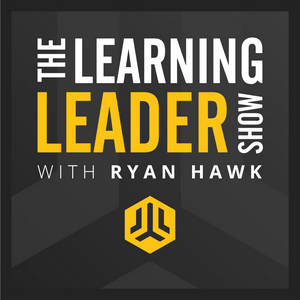
Hol dir die kostenlose radio.de App
- Sender und Podcasts favorisieren
- Streamen via Wifi oder Bluetooth
- Unterstützt Carplay & Android Auto
- viele weitere App Funktionen
Hol dir die kostenlose radio.de App
- Sender und Podcasts favorisieren
- Streamen via Wifi oder Bluetooth
- Unterstützt Carplay & Android Auto
- viele weitere App Funktionen


The Learning Leader Show With Ryan Hawk
App laden,
loshören.

